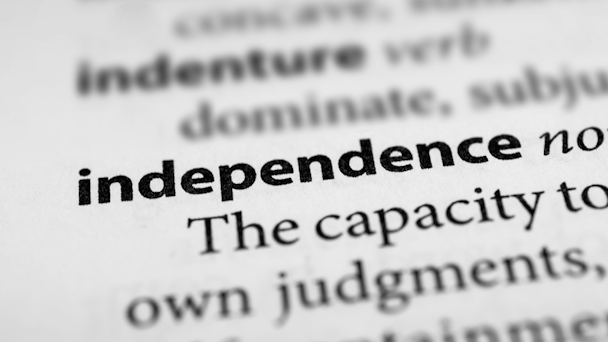Libby Brockhoff: The beauty of independence
I have spent my entire career at independent agencies, having been lucky enough to start out at Deutsch (I worked with Donny’s dad, David), and then going on to co-found two independent agencies — first, Mother in London, and now, Odysseus Arms.

Libby Brockhoff on the beauty of independence
We are living in a post-merger era where many agencies operate under the umbrella of a handful of holding companies, but I believe I could not do what I do without the freedom and flexibility that come with actual independence. So, it is no surprise to me that this merger model is struggling, with fewer brands choosing to have agency-of-record agreements and holding companies losing value.
Sure, holding companies try to let creatives be, well, creative, but the atmosphere they foster is not as conducive to imagination or inspiration. I’ve heard friends complain about the layers of approval they need to get a paper clip, and while I recognize hyperbole when I hear it, bureaucracy — the kind often reserved for banks, law firms, and the Department of Motor Vehicles — can be a real problem. When CFOs and procurement people — who answer to shareholders and not brands — call the shots, creativity inevitably bumps up against financial constraints, political concerns, and a corporate party line that may never have been made public, even to employees. It’s not just that you need to get approval for every expense, but for every idea, and ideas can get watered down as they get passed around. It’s like a game of corporate telephone; the original message will get garbled as it trickles back to the client.
This process hurts clients and staff. As others, including Dan Wieden, have pointed out, creatives are not people who wake up in the morning with a song in their heart and a spring in their step because today’s the day they are going to make the shareholders happy. (This explains the condition he put on his agency as well as, Callen, the new independent agency in Austin that Wieden+Kennedy is helping to support — they can never be sold.) Sure, job security and the potential for personal financial gain are the reason at least half of the American workforce gets out of bed, but that doesn’t mean they are motivated to let their imaginations soar. It’s too easy to get complacent when your work is less important than the stock price on Monday.
When you boil it down, it’s the humanity that gets lost in this arrangement. Advertising is all about humanity; the human connection between creatives and clients, and the human connection between consumers and brands.
The beauty of independent agencies is that they reflect the people they attract — those who are entrepreneurial, want to make a difference, and like to get their hands dirty. We appeal to purebred disruptors, creative hell-raisers who are fearless and thrive on a difficult challenge. I see my job as opening doors and inspiring them to see what’s on the other side. If they’re not feeling free to walk through new doors, their work will suffer from a commonness of thought, and there’s nothing worse in this business than ordinary. I actually set a limit on the number of times I can say no to my staff. It’s not about over-managing, it’s about over-inspiring.
The same can be said of my relationships with clients. We get to pick our clients and create long-lasting, personal relationships with them and their brands. And we get to offer them unparalleled service and ingenuity. As the founder of an independent agency, the risks are my own, so I operate with impunity. With no one to tell me no, I can go out on a limb for clients and do what it takes to be innovative even if I have to take financial or political risks. Complete freedom allows for merciless innovation and creativity. You see that in genuinely independent agencies like Wieden+Kennedy, Venables Bell & Partners, and The Richards Group.
Independent agencies are also nimble in a way that a 10,000-person holding company cannot be. There’s creativity even in our contracts with clients, so that we can offer the brand precisely what it needs and turn on a dime if those needs change. When I’m cooking up a metaphor for indie, I imagine us as a rogue motorcycle gang complete with groovy Easy Rider-style bikes, leather jackets with our undoubtedly cool gang name embroidered on the back, aviator glasses, and the ability to go wherever the hell we want. Sure, we wear our helmets, but we take risks, run wild, get loud, and change course whenever needed. Sometimes we pull over on the side of the highway, regroup, and then rumble off toward the scenic route, so we can explore new places and meet new people. We’re fierce but friendly, and we do things our way.
Compare this to the lumbering behemoth of an oil tanker that is a holding company, and you can understand why that model is starting to hit the skids. Then add the insane pressure CMOs are under, and the often brief length of their stewardship, and it’s no wonder that the big, fat, agency-of-record, retainer model has gone by the wayside. As we are all aware, brands are much more likely to pick and choose the services they want from their agencies and hire on a project-by-project basis. They don’t just want creativity; they want agility.
Advertising has always been the lunatic fringe of the corporate world, and that’s where we need to stay. We’re not supposed to be buttoned-down, conventional, or well behaved. We’re cultural fanatics who need to be elegantly fearless. The way to do that is to fight for freedom and remain independent.
Read Libby Brockhoff's last column on how agencies can help in-house creative teams.
